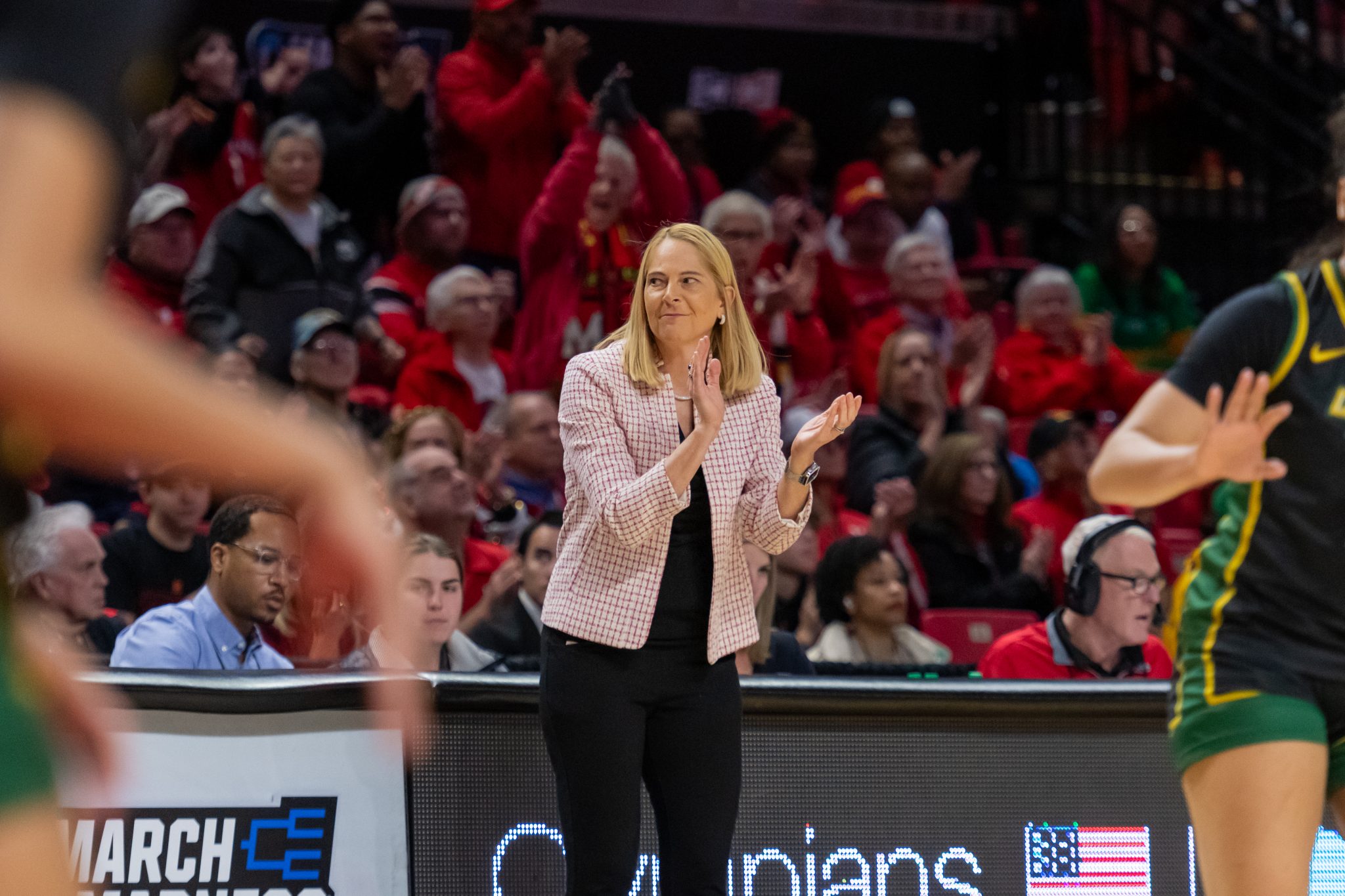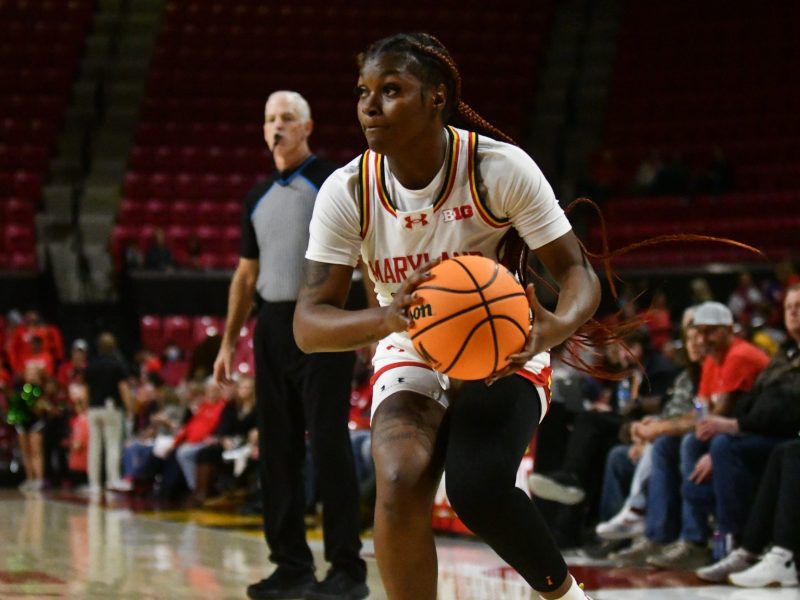Maryland women’s basketball players and coaches gathered around Xfinity Center court a day before their second-round NCAA tournament game against Alabama.
Coach Brenda Frese delivered a speech to end the Sunday afternoon practice, then looked to Ryland Adkins, the team’s basketball operations director.
Adkins laid out the plan for Monday’s game. Team shootaround and final film sessions were scheduled for the next morning. Then, the team would have a pregame meal in the mid-afternoon.
Just be aware, Adkins noted, the national anthem planned to start early — before the team’s countdown clock expired prior to tipoff.
Senior forward Amari DeBerry asked if the Terps would get a full warm up.
Maryland’s last two games had limited warm up time, disrupting its meticulously planned routine as back-to-back games in the Big Ten and NCAA tournaments forced teams to share courts.
But Monday’s matchup between the Terps and Crimson Tide was the lone game on the day’s docket.
“Yes,” Adkins nodded.
Adkins loves the logistical work, as tedious as it may be.
The Virginia native graduated from Maryland in 2016 after five seasons as a student manager under Frese. She received the Jack Heise Award in both 2013 and 2014, which honors the service of a team manager.
“I never really knew that you could have a role in athletics before then,” Adkins said.
She grew up surrounded by basketball. Her dad, David, played basketball at Radford before moving to the sidelines. As a Maryland assistant from 2009 to 2014, he helped the Terps to a 130-38 record and briefly overlapped with his daughter in College Park.
[Shyanne Sellers, Sarah Te-Biasu powered Maryland women’s basketball’s overtime win]
Much like now, the operations director’s role with the team back then stretched almost exclusively beyond the hardwood.
Frese vividly remembers sending the former student manager on errands, including driving around Frese’s twin sons.
The pair gradually built trust with each other.
After stints overseeing basketball operations at Bucknell, Furman and Richmond, Adkins returned to College Park in June 2021.
“We talk about family, but for us, it’s more than that. When you can have great people in your program that have already been a part [of it] and know what it takes, it’s even better,” Frese said.
Now, the two meet nearly every day to discuss logistics alongside interim athletic director Colleen Sorem.
“We’re both on speed dial. I’m the first point of contact for [Adkins] and vice versa,” Frese said. “She’s the glue behind the scenes.”
Adkins handles most of the team’s behind-the-scenes work — whether it’s air travel, ground transportation, scheduling, equipment or work with strength and nutrition specialists.
All those responsibilities are heightened during the NCAA tournament.
“You find out [matchups on] Selection Sunday. If you are traveling, you usually have three days to prepare for the trips,” Adkins said.
Full band and cheer squads are typically part of the Terps’ travel group, along with players, coaches and support staff. Maryland’s average cohort during the postseason is nearly 100 people.
The most important part of Adkins’ job is to effectively distribute travel and logistical information to all involved parties as she receives it.
“The NCAA books the hotels for you, but then [I’m] the one there that’s actually coordinating with the hotels of rooming list and arrival [times], how many bus spots do [we] need, all that stuff,” Adkins said.
Maryland and Alabama received identical emails from NCAA administration after the teams’ respective first-round wins last Saturday, Adkins said. The organization prepared and briefed both on potential travel to Birmingham, Alabama, for third and fourth round matchups if they advanced.
After Maryland won in double overtime against the Crimson Tide, most of the upcoming NCAA tournament regional information was provided to the Terps within a 24-hour window after the game — except for flights.
[Maryland women’s basketball rallies in 111-108 overtime win over Alabama in second round]
During the postseason, NCAA typically oversees air travel to neutral-site locations, Adkins said. It’s a limited luxury compared to the regular season, when individual teams and internal staff have more control on travel times and dates that best fit unique schedules.
“We can’t really decide when we want to leave and when we get to leave — it’s all up to the NCAA,” DeBerry said. “So [we’re] just being adaptive and on the fly with everything.”
Before the Terps are airborne, Adkins meets with Benjamin Nash, Maryland’s assistant athletic director for equipment operations.
The pair talk through uniform colors and combinations — heavily influenced by the Terps’ postseason seed relative to their opponent’s — before packing a collage of practice and game jerseys.
Next, Adkins communicates with academic staff about players missing class due to upcoming shootarounds and games.
“Ryland’s awesome,” senior guard Shyanne Sellers said. “She takes really good care of us and does a lot of the things that no one else understands.”
After the prep work is done, Adkins has one more task after tip-off.
“I’m just cheering on the team and keeping the bench positive,” she said.



